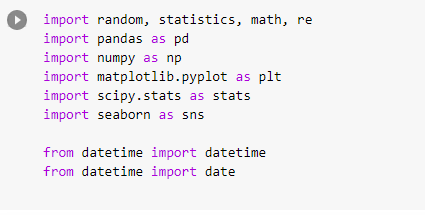But there were tricks that I learned about getting books from publishers. 2/x
I've gotten a few questions about this, so let me clarify and provide as much helpful information as this medium will allow.
To begin, both of my parents are MBA's and are assertive. They taught us four kids to be assertive. 1/x
Many underestimate the generosity of (most) publishers. I probably got $10,000 worth of free books during my 4 years in Durham by request exam or review copies. Sometimes, I just emailed a publisher and said, "I need this book, but I can't afford it. Can you help me out?"
— Stephen D. Campbell, Dr. theol. (@the_OT_Campbell) December 13, 2020
But there were tricks that I learned about getting books from publishers. 2/x
Some (like JHS) have no word limits, b/c they're online.
Some (like Vetus Testamentum) will happily publish 100 word reviews and 2,500 word review essays. 8/x
Fortress: Don't bother unless you get a review editor to get the book for you.
Routledge: I'm still waiting on them to reply to an email from 4 years ago. So I don't try. 11/x
Yale: They've made me jump through some crazy hoops to get books. I've had luck getting exam copies. 12/x
IVP: Not sure. They don't publish in Germany, so I've been able to get some ebooks, but nothing in print. 13/x
Westminster/John Knox: Not generous. You can sometimes convince them to give you a temporary digital copy.
OUP/CUP: You better know where the review will be published. If you do, then you have a good chance. 14/x
Eerdmans: They are generous, but their generosity has limits of how many exam copies you can get in a year. 15/x
Lexham: Very generous.
SBL: haven't tried.
Eisenbrauns: They are a very small press and not super generous. You have to be submitting to a high level journal. 16/x
Peter Lang: I don't bother asking anymore. They've always said no, unless it was the journal asking for me. 17/x
Mohr Siebeck: Also VERY generous. I've never been denied a request.
V&R: Less generous, but I've had recent luck since my PhD was completed. I told them exactly where the review will go. 18/x
Notre Dame UP: I stopped trying. I had luck once. But as I recall, they work very slowly.
Baylor Press: They are another small press that has to be careful with how many books they give away. Best to go through your review editor. 19/x
JPS: Never had luck with them either, unless the journal already had received the book from the publisher and the journal sent it to me.
Peeters: No luck there either. I suspect I'd have to go through the review editor. 20/x
More from Book
You May Also Like
Nano Course On Python For Trading
==========================
Module 1
Python makes it very easy to analyze and visualize time series data when you’re a beginner. It's easier when you don't have to install python on your PC (that's why it's a nano course, you'll learn python...
... on the go). You will not be required to install python in your PC but you will be using an amazing python editor, Google Colab Visit https://t.co/EZt0agsdlV
This course is for anyone out there who is confused, frustrated, and just wants this python/finance thing to work!
In Module 1 of this Nano course, we will learn about :
# Using Google Colab
# Importing libraries
# Making a Random Time Series of Black Field Research Stock (fictional)
# Using Google Colab
Intro link is here on YT: https://t.co/MqMSDBaQri
Create a new Notebook at https://t.co/EZt0agsdlV and name it AnythingOfYourChoice.ipynb
You got your notebook ready and now the game is on!
You can add code in these cells and add as many cells as you want
# Importing Libraries
Imports are pretty standard, with a few exceptions.
For the most part, you can import your libraries by running the import.
Type this in the first cell you see. You need not worry about what each of these does, we will understand it later.

==========================
Module 1
Python makes it very easy to analyze and visualize time series data when you’re a beginner. It's easier when you don't have to install python on your PC (that's why it's a nano course, you'll learn python...
... on the go). You will not be required to install python in your PC but you will be using an amazing python editor, Google Colab Visit https://t.co/EZt0agsdlV
This course is for anyone out there who is confused, frustrated, and just wants this python/finance thing to work!
In Module 1 of this Nano course, we will learn about :
# Using Google Colab
# Importing libraries
# Making a Random Time Series of Black Field Research Stock (fictional)
# Using Google Colab
Intro link is here on YT: https://t.co/MqMSDBaQri
Create a new Notebook at https://t.co/EZt0agsdlV and name it AnythingOfYourChoice.ipynb
You got your notebook ready and now the game is on!
You can add code in these cells and add as many cells as you want
# Importing Libraries
Imports are pretty standard, with a few exceptions.
For the most part, you can import your libraries by running the import.
Type this in the first cell you see. You need not worry about what each of these does, we will understand it later.



























